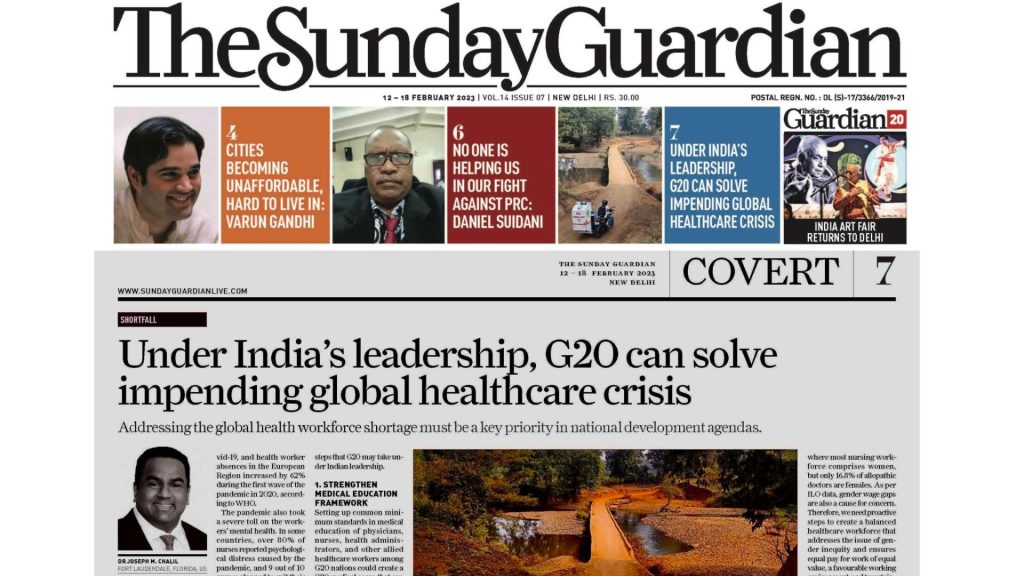According to a new study published in the Lancet, an estimated 6.4 million physicians are needed to meet global universal health coverage (UHC) goals. America is also experiencing a significant physician shortage, and it’s only expected to get worse, a concerning situation that could lead to poorer health outcomes for many patients. Data published in 2020 by the Association of American Medical Colleges estimates that the US could see a shortage of 54,100 to 139,000 physicians by 2033. G20, under the leadership of India and Prime Minister Narendra Modi, could offer bold solutions to this impending global healthcare crisis. While the recommendations to establish a G20 Health Preparedness Taskforce are excellent, addressing the global health workforce shortage must be a key priority in national development agendas. India can help solve the expected global physician shortage in G20 nations by investing in healthcare infrastructure and training programs. This could involve increasing funding for medical schools and postgraduate programs and improving the quality of medical education. Additionally, India can help by expanding its role in providing medical services to underserved populations in G20 countries. This could include establishing telemedicine programs, allowing Indian doctors to provide medical care remotely. India can also work with governments in G20 nations to develop more streamlined pathways for Indian doctors to practice in those countries. Finally, India could use its public health and health systems expertise to help G20 countries develop and implement effective healthcare policies.

